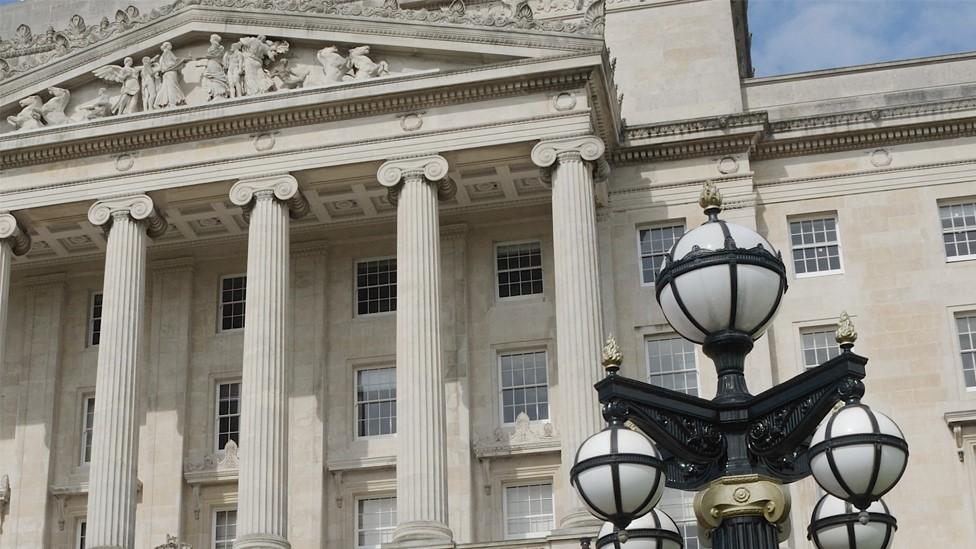Martin McGuinness: Programme for government talks 'must build on progress'
- Published
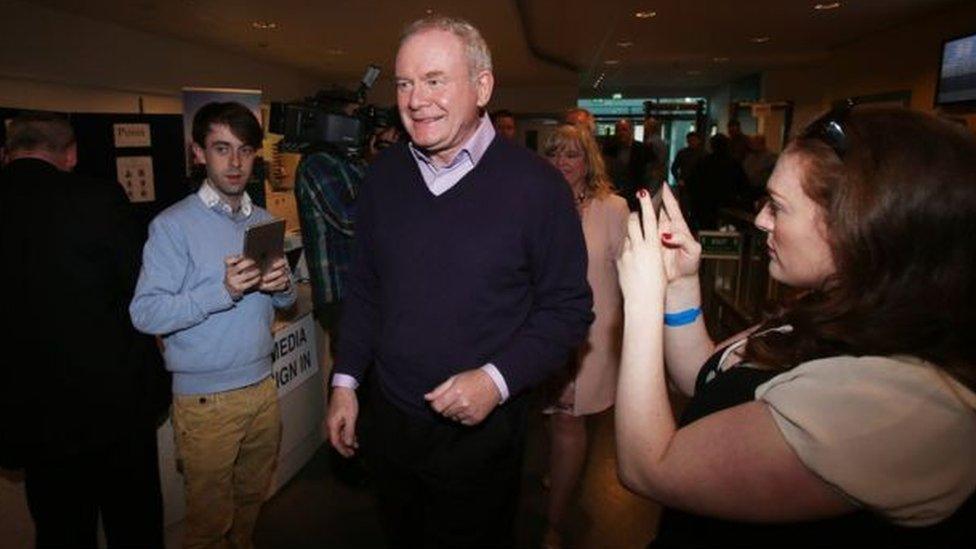
Sinn Féin's Martin McGuinness topped the poll in his home constituency of Foyle
Sinn Féin's Martin McGuinness has said that talks on shaping a programme for government must build on progress already achieved in Northern Ireland.
All 108 seats in the new assembly have now been filled after the final count in Upper Bann on Saturday.
Democratic Unionist Party (DUP) leader Arlene Foster said she is looking forward to the start of government negotiations.
The DUP remains the largest party at Stormont.
As it happened: Northern Ireland Assembly election results
Moments from count centres across Northern Ireland
The DUP has 38 seats, while Sinn Féin has 28, the Ulster Unionists 16, SDLP 12 and the Alliance Party has eight.
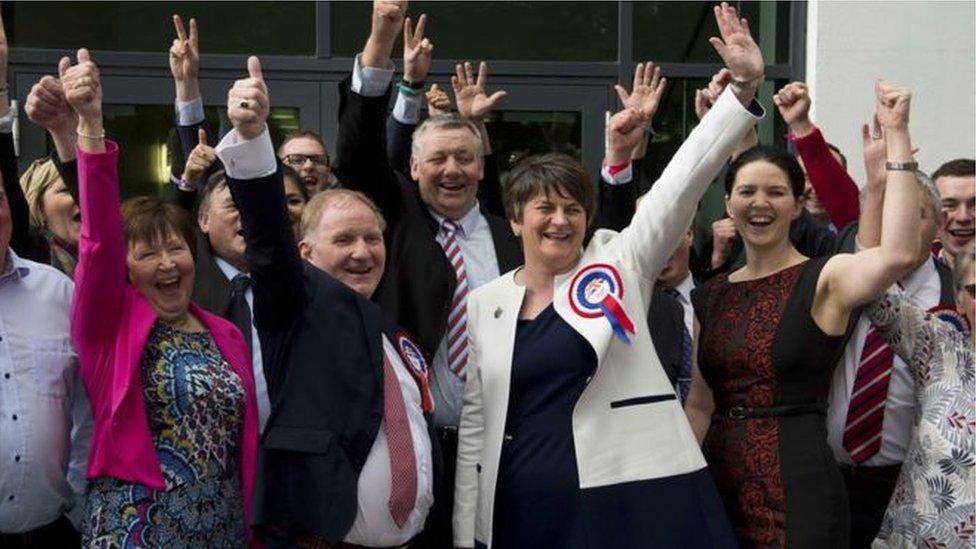
DUP leader Arlene Foster topped the poll in Fermanagh and South Tyrone
Political parties have been given two weeks to agree a programme for government.
BBC's Ireland Correspondent Chris Buckler's view of the future assembly
Anti-austerity party picks up seats
Those talks will begin at Stormont on Monday.
All 108 seats have now been declared in the Northern Ireland Assembly Election
Mr McGuinness topped the poll in his home constituency of Foyle.
He said that it is "incumbent on all those with a mandate to work together for the greater good in the face of many challenges".
"On Monday, we will be entering discussions to agree and conclude a deliverable programme of government.
"This programme must build on the progress to date and must represent a further step in the new start for our institutions."
He told BBC Radio Ulster's The Sunday News that he hoped the programme for government negotiations could be finished before the two weeks allotted.
"Work on the programme for government has been going on prior to the election for some months.
"I do believe a considerable amount of work has been done. I would hope it could be concluded fairly quickly."
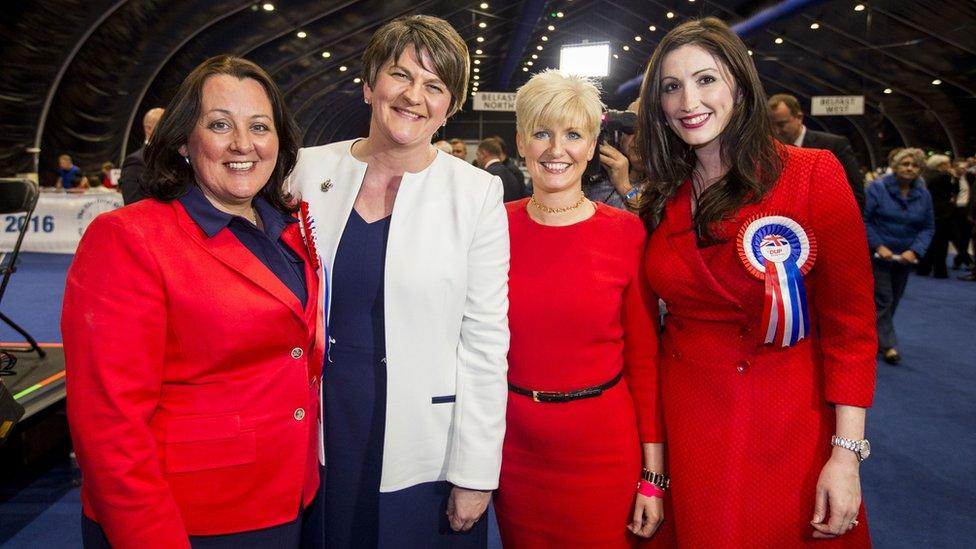
Arlene Foster's DUP has performed well after she topped the Fermanagh and South Tyrone poll
DUP leader Arlene Foster, also speaking on The Sunday News, said that she was "looking forward" to the negotiations.
"What I need to do now is bring forward my plan for the negotiations and to start getting things done for the country.
"That's what I'm very focused on now in the next week."
Mrs Foster added that she was hopeful that the programme negotiations would result in an extra £1bn spending for health.
"I'm heartened that Sinn Féin in their manifesto also pointed out there should be £1bn more spent on health, so hopefully that will be able to be delivered.
"I think people would welcome that right across Northern Ireland."
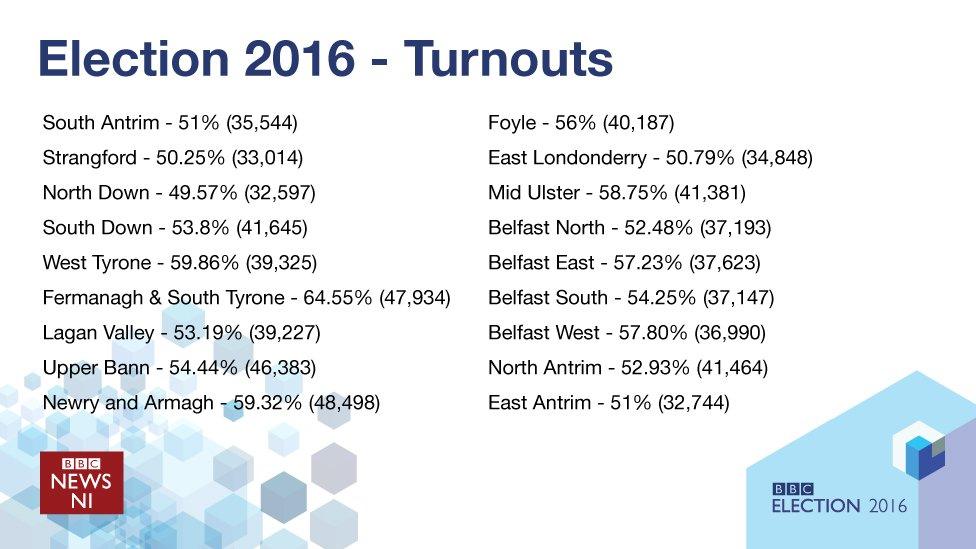
SDLP's Nichola Mallon said that the negotiations will determine whether her party goes into government or opposition.
"For us it's around the content for the programme for government," she said.
"If it's right, we will be a part of government. If it's not, then we will be in opposition.
"More has to be achieved and we're willing to be at the table to try and achieve that," she said.
Philip Smith, from the UUP, said his party would get involved in negotiations but will not support the programme for government if it is "pre-cooked" or "tinkering around the edge".
"If the programme for government is progressive and if there is a consensus to make it work, we may well go into government.
"If we do, we would love the opportunity to take education as it in such a mess."
Stephen Farry, from the Alliance Party, said there is a "major question" over whether the Alliance Party would go enter the executive.
"There are issues around the quality of the programme for government, issues around how the way business is done," he said.
- Published7 May 2016
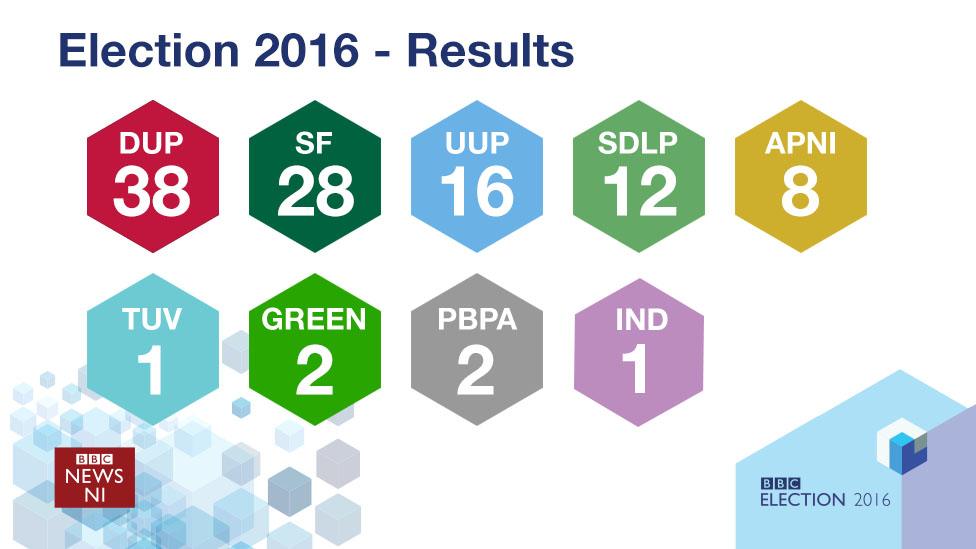
- Published3 May 2016
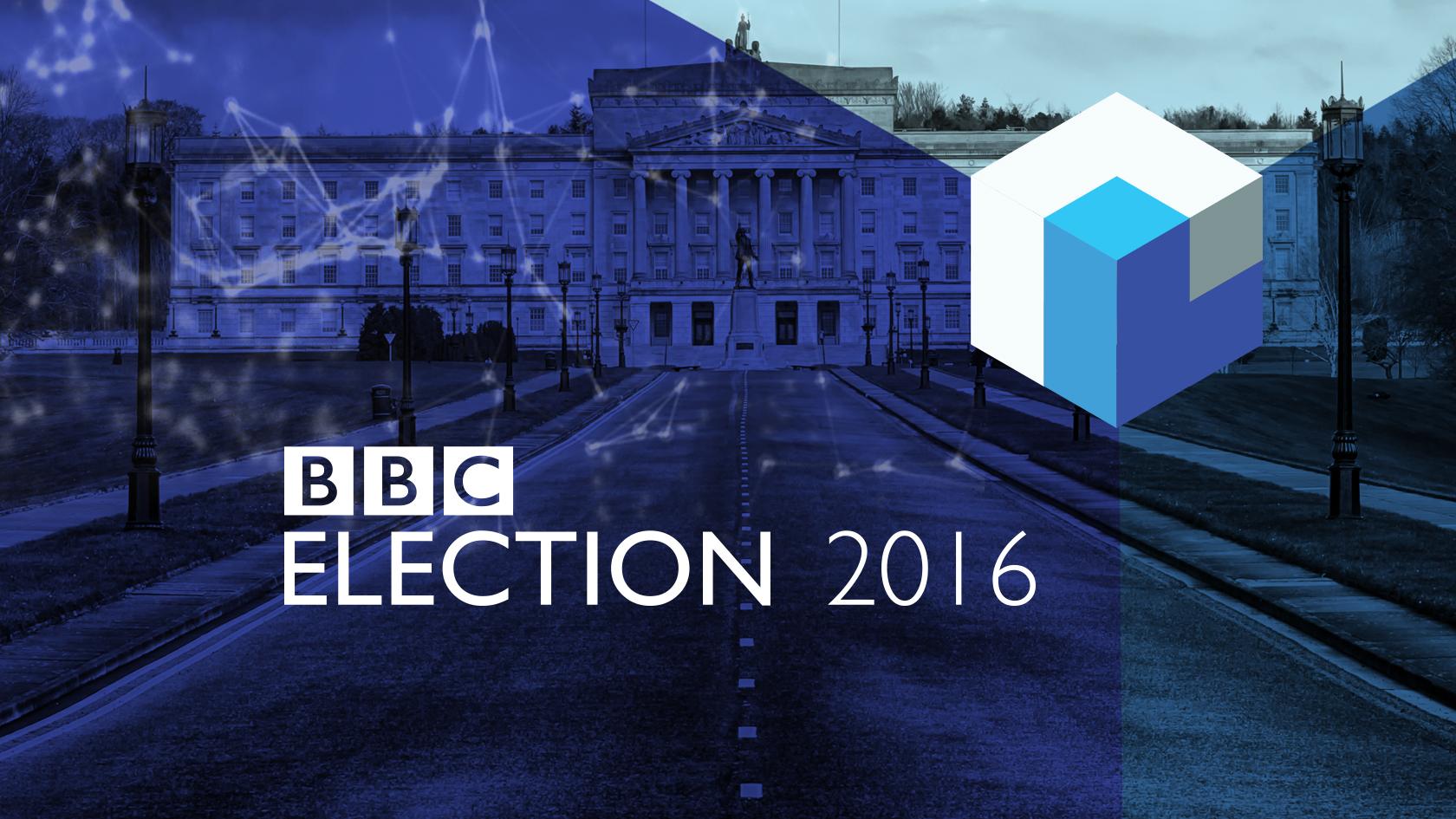
- Published7 May 2016
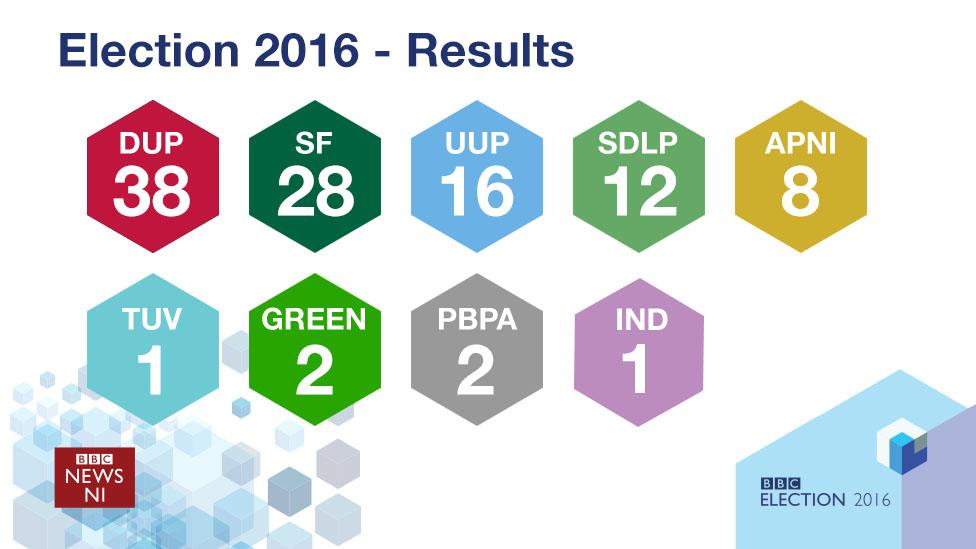
- Published7 May 2016
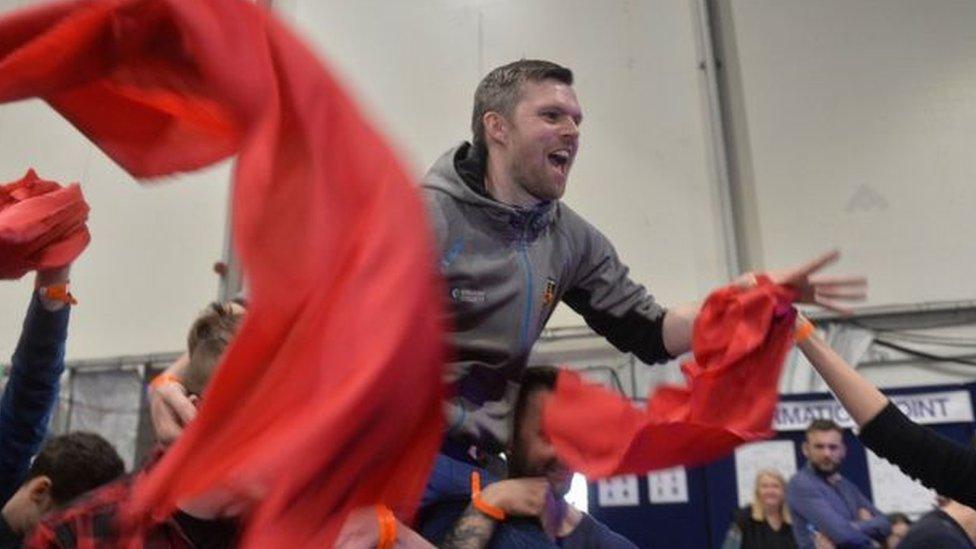
- Published7 May 2016
- Published9 May 2016
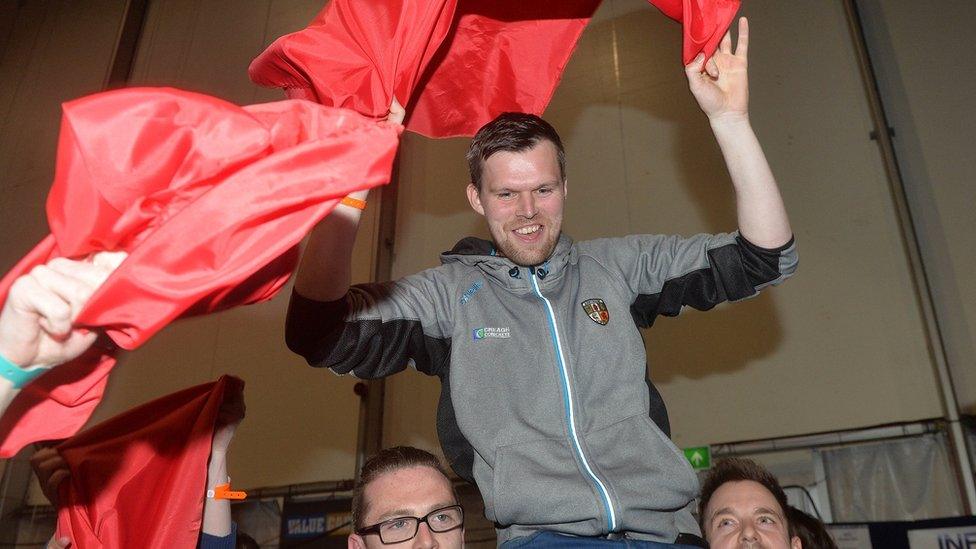
- Published7 May 2016
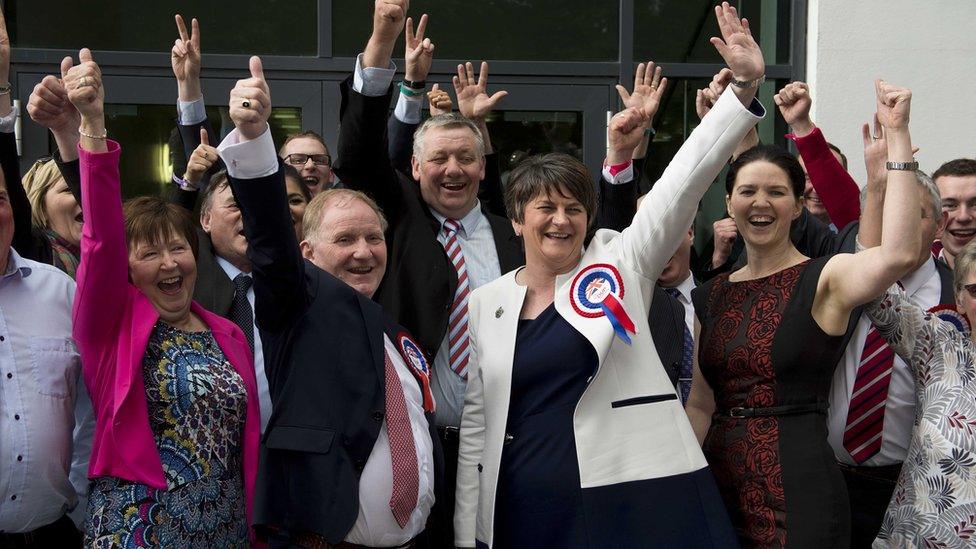
- Published13 April 2016
